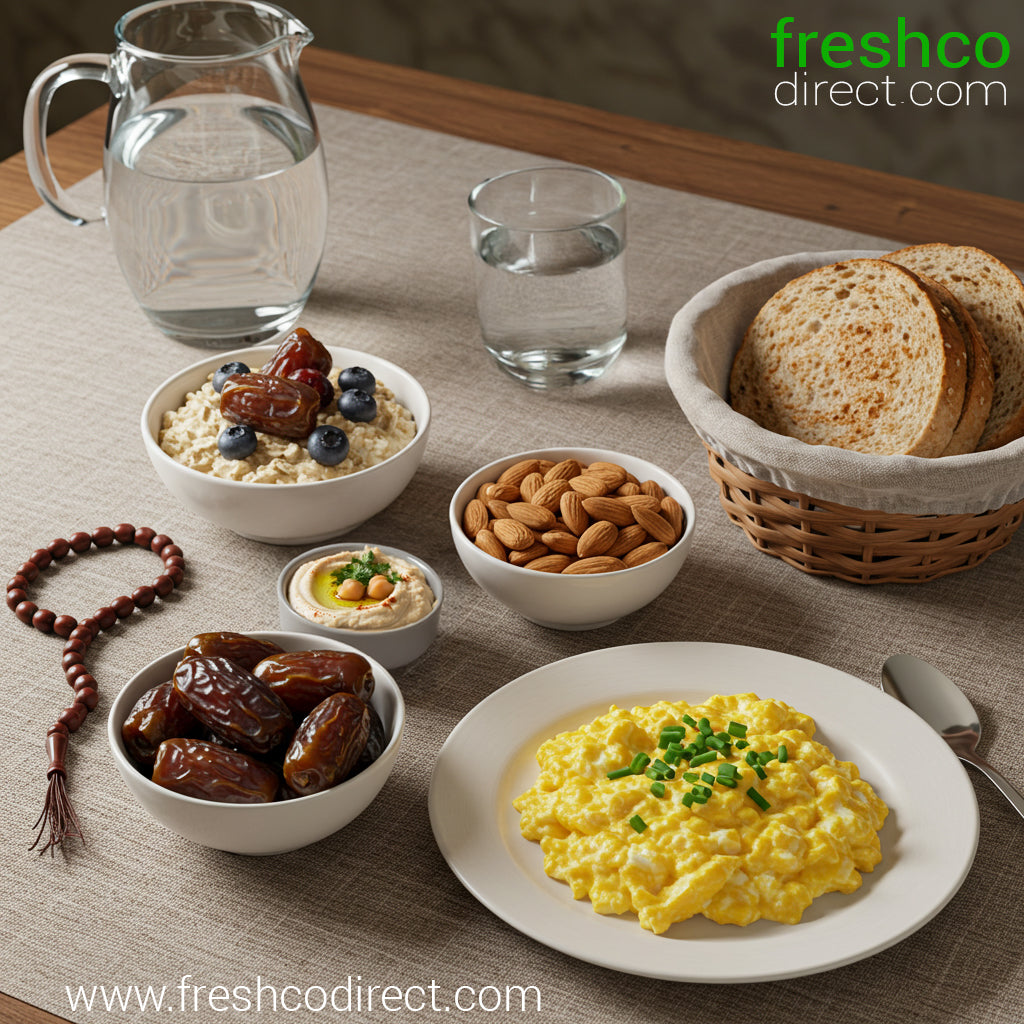
Meal Planning for a Healthy Ramadan
Tariq AzizDate: 7 February 2025
Introduction
Proper nutrition during Ramadan ensures that you can fast effectively while maintaining your energy and focus for worship. Planning your meals in advance helps you stay healthy and avoid overindulgence. This blog provides practical tips for creating balanced suhoor (pre-dawn) and iftar (breaking fast) menus.
1. The Importance of Meal Planning
Ramadan is not about feasting; it’s about moderation and discipline. A well-thought-out meal plan ensures that:
- You Avoid Overeating: Balanced meals prevent fatigue and digestive issues.
- You Stay Energised: Healthy choices sustain your energy throughout the fast.
- You Save Time: Pre-planned meals reduce time spent cooking, leaving more room for worship.
2. Building a Balanced Suhoor
The pre-dawn meal is crucial for sustaining you through the day. Focus on:
- Complex Carbohydrates: Oats, whole grains, and lentils provide slow-releasing energy.
- Proteins: Eggs, Greek yoghurt, and nuts help keep you full.
- Hydration: Drink plenty of water and include hydrating foods like cucumbers and watermelon.
Example Suhoor Menu:
- Scrambled eggs with whole-grain toast.
- A bowl of oats with honey, nuts, and fruit.
- A glass of water and a cup of green tea.
3. Creating a Nourishing Iftar
Breaking your fast should be gradual and nourishing. Follow the Sunnah by starting with dates and water:
- Fibre-Rich Foods: Lentil soup, leafy greens, and vegetables aid digestion.
- Lean Proteins: Grilled chicken, fish, or beans are ideal for muscle recovery.
- Avoid Fried Foods: Minimise heavy, fried dishes that can cause sluggishness.
Example Iftar Menu:
- 3 dates and a glass of water.
- Lentil soup with a side of salad.
- Grilled salmon with roasted vegetables.
4. Hydration and Moderation
Staying hydrated is essential during Ramadan. Drink plenty of water during non-fasting hours, and limit sugary drinks. Remember, moderation is key to prevent post-iftar lethargy.
Conclusion
Meal planning for Ramadan ensures you stay energised, focused, and healthy throughout the month. By choosing balanced, nutritious foods and avoiding overindulgence, you can honour the spirit of fasting while maintaining your physical well-being.






















































































